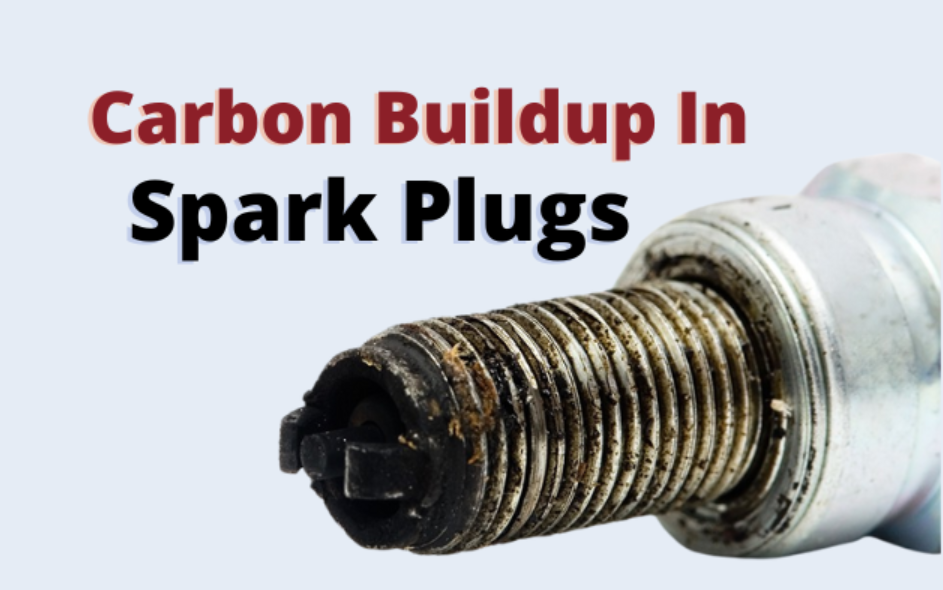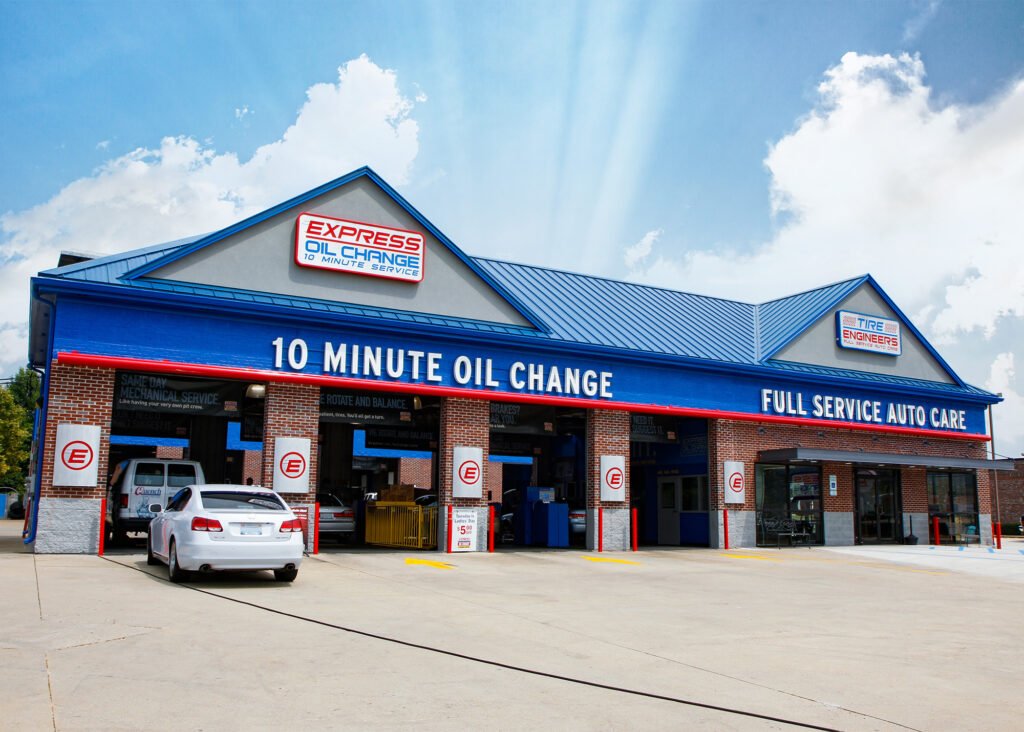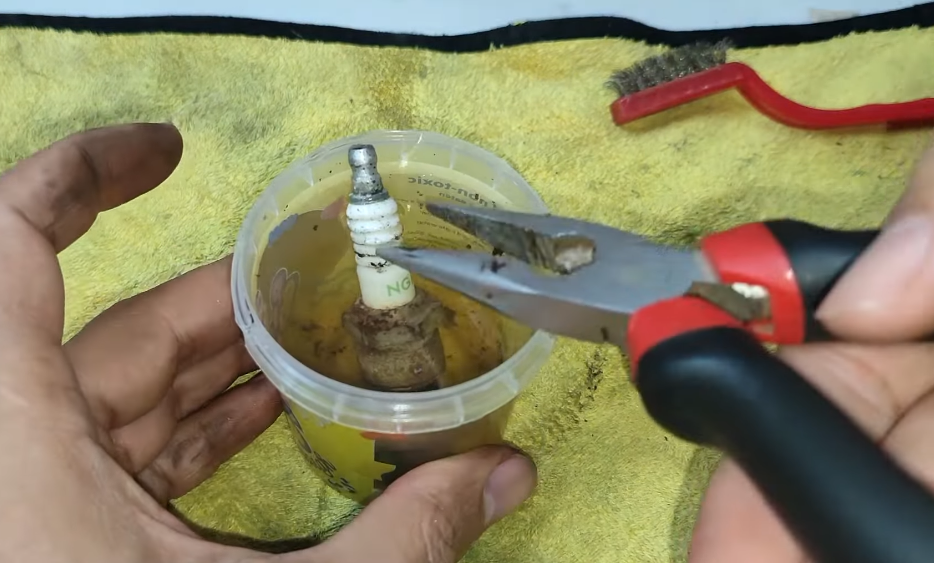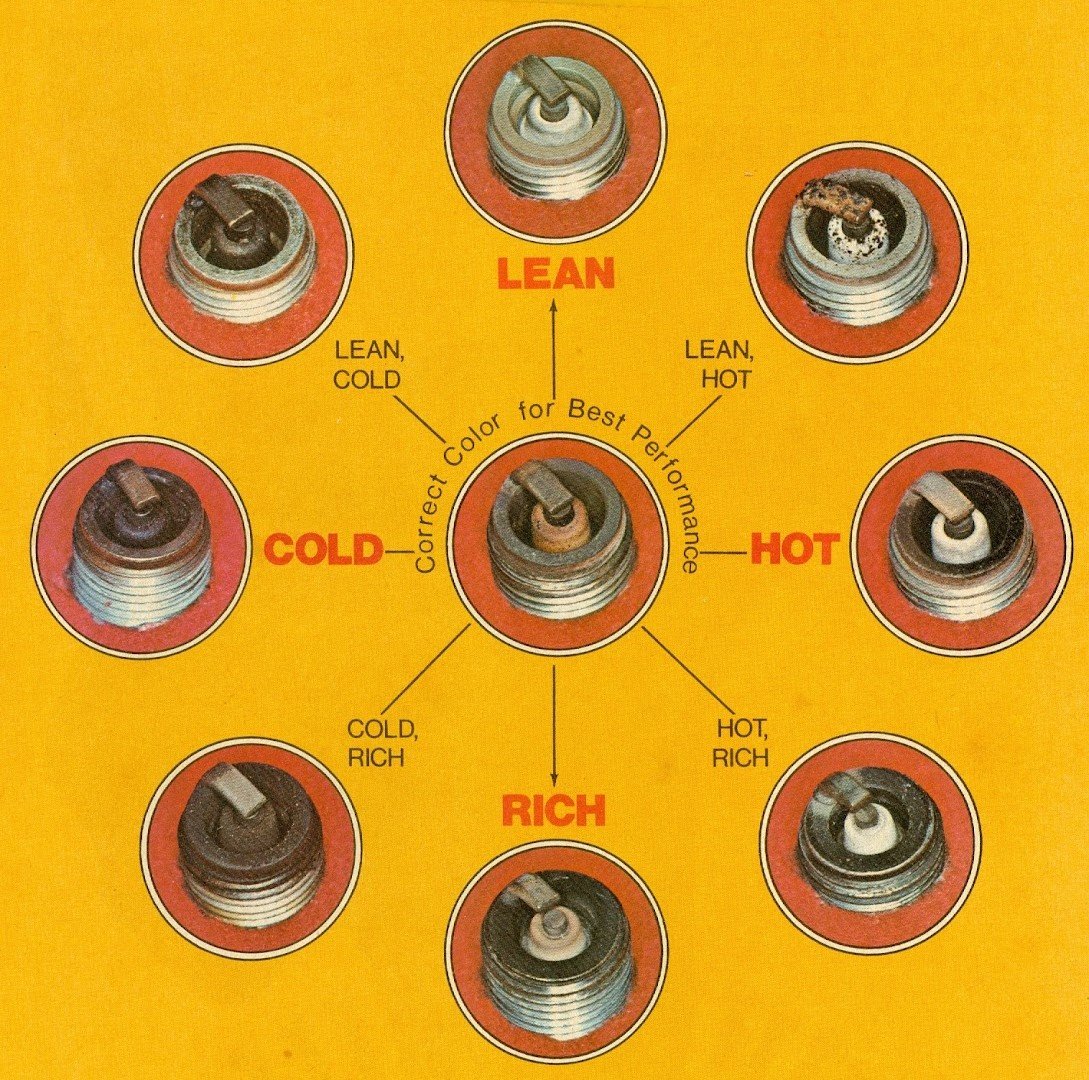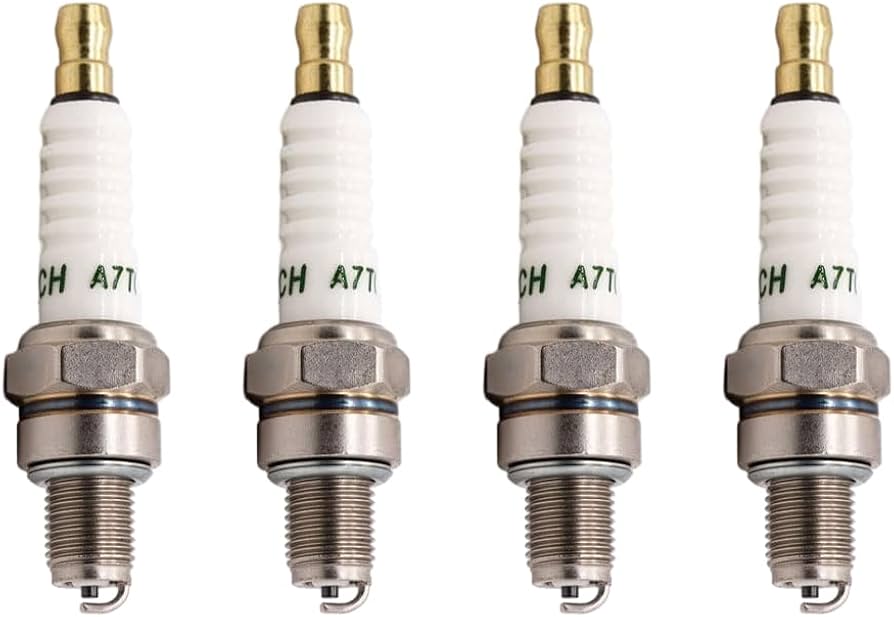A hotter spark plug can help burn off carbon deposits by increasing the spark plug’s operating temperature, potentially improving performance in certain situations. However, it’s not a guaranteed fix for carbon fouling, as it doesn’t address the underlying causes like a rich fuel mixture or worn engine components.
Carbon fouling is a persistent issue that many car owners experience over time. It is an annoying and often overlooked problem that can compromise engine performance, efficiency, and overall driving experience. One question that often arises is whether switching to a hotter spark plug can fix carbon fouling. While it’s a popular suggestion, the answer isn’t as straightforward as it may seem.
This article explores carbon fouling in detail, explains the role of spark plugs, and evaluates whether a hotter spark plug can indeed fix the issue. We’ll also discuss other potential solutions and considerations for the vehicle.
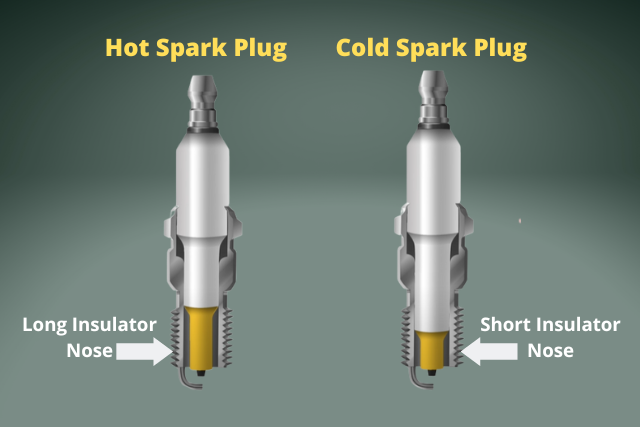
Contents
What Is Carbon Fouling?
Carbon fouling occurs when carbon deposits build up on the spark plug’s electrodes. This happens as a result of incomplete combustion in the engine, leading to the accumulation of carbon particles on the plug. These deposits can interfere with the spark plug’s ability to create a strong spark, causing issues like rough idling, misfires, and poor engine performance. Over time, the spark plugs become dirty and inefficient, leading to increased fuel consumption and potential engine damage.
Common Causes of Carbon Fouling
Carbon fouling is caused by a variety of factors, often stemming from issues related to fuel mixture, engine condition, and driving habits. The following are some of the most common causes:
- Rich Fuel Mixture: A rich fuel mixture occurs when there is an excess of fuel relative to air in the combustion chamber. This can happen due to issues with fuel injectors, fuel pressure regulators, or air filters. A rich mixture leads to incomplete combustion, which produces excess carbon.
- Frequent Short Trips: Short trips prevent the engine from reaching its optimal operating temperature. When the engine doesn’t warm up properly, incomplete combustion takes place, leading to the accumulation of carbon deposits on the spark plugs.
- Faulty Fuel Injectors: Leaking or malfunctioning fuel injectors can cause too much fuel to be injected into the combustion chamber. This excess fuel can burn incompletely and create carbon buildup.
- Worn Engine Components: Worn or damaged components such as piston rings, valve seals, or cylinder heads can allow oil to seep into the combustion chamber. This can result in oily deposits that combine with carbon, leading to fouling on the spark plugs.
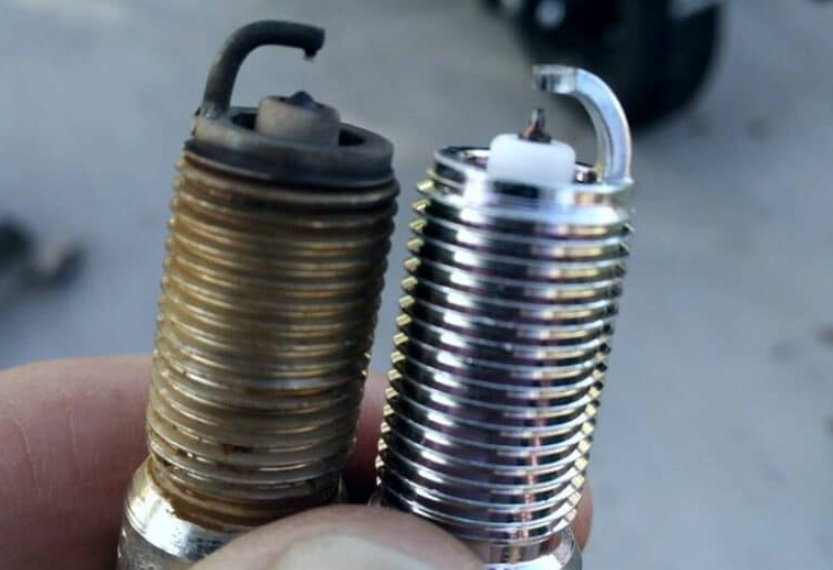
How Spark Plugs Work
Spark plugs are critical components in the ignition system of an engine. Their primary function is to ignite the air-fuel mixture within the combustion chamber by creating a spark. Spark plugs are subjected to extreme temperatures, and over time, they can accumulate carbon deposits due to the combustion process. They are designed to dissipate heat effectively, ensuring optimal ignition.
There are different types of spark plugs available, and the heat range of a spark plug plays a significant role in its performance. The heat range is a measure of how effectively a spark plug can dissipate heat. A “hotter” spark plug retains more heat, while a “colder” spark plug can transfer heat more effectively
The Role of Spark Plug Heat Range
The heat range of a spark plug is important in determining its ability to handle the heat generated during combustion. Spark plugs are available in a range of heat ratings, with each type suited for specific engine conditions and applications. When considering whether a hotter spark plug can fix carbon fouling, it’s essential to understand the relationship between heat range and carbon buildup.
What Is a Hotter Spark Plug?
A hotter spark plug is one that has a higher thermal rating, meaning it retains more heat during operation. This heat is necessary to burn off any carbon deposits that may have accumulated on the spark plug. Hotter spark plugs are generally used in engines that operate at higher temperatures, such as those in high-performance or racing vehicles.
How Does a Hotter Spark Plug Work?
A hotter spark plug works by maintaining higher temperatures at the spark plug’s tip. This heat helps in igniting the fuel-air mixture more thoroughly, reducing the likelihood of carbon deposits forming in the first place. By increasing the spark plug’s temperature, it can also help burn off existing carbon deposits.
Can a Hotter Spark Plug Fix Carbon Fouling?
While a hotter spark plug may help burn off carbon deposits, it is not always the most effective or comprehensive solution to carbon fouling. It’s important to understand that carbon fouling is a symptom of an underlying issue, and simply replacing the spark plugs with a hotter version does not address the root cause.
Benefits of Using a Hotter Spark Plug
There are situations where a hotter spark plug can be helpful in addressing carbon fouling. Some benefits include:
- Improved Combustion: Hotter spark plugs can aid in more complete combustion, especially if the engine has been running rich due to excess fuel. This can help reduce the accumulation of carbon.
- Burn Off Carbon Deposits: If the spark plugs are already fouled with carbon, a hotter spark plug may help burn off some of the existing buildup. This can temporarily improve performance and reduce misfires.
- Prevents Wet Fouling: In certain cases, using a hotter spark plug may prevent wet fouling, where carbon deposits combine with oil to form a thick sludge. By maintaining higher temperatures, the spark plug may prevent this from occurring.
Drawbacks of Using a Hotter Spark Plug
However, using a hotter spark plug isn’t always the best solution. There are several drawbacks to consider:
- Increased Risk of Pre-Ignition: A hotter spark plug can raise the temperature in the combustion chamber, increasing the risk of pre-ignition, where the air-fuel mixture ignites prematurely. This can cause engine knocking and potential damage.
- Exacerbates Underlying Issues: If the carbon fouling is due to a rich fuel mixture or faulty engine components, a hotter spark plug may not solve the problem. In fact, it could make things worse by causing further incomplete combustion or increasing the wear on engine components.
- Potential for More Fouling: In some cases, a hotter spark plug may lead to more carbon fouling. This can occur if the spark plug retains too much heat and causes more unburned fuel to accumulate.
When Should You Consider a Hotter Spark Plug?
There are specific situations where a hotter spark plug might be beneficial, particularly for drivers with certain habits or conditions:
- Short Trips and City Driving: If you frequently take short trips where the engine doesn’t have time to warm up fully, using a hotter spark plug can help prevent carbon fouling caused by incomplete combustion.
- Frequent Idling: If your vehicle idles for long periods (for instance, in traffic or during long waits), a hotter spark plug may help burn off some of the excess carbon.
- Rich Fuel Mixture: If your vehicle’s fuel system is delivering more fuel than necessary, a hotter spark plug may help burn off some of the excess fuel and prevent carbon buildup.
Alternatives to Fix Carbon Fouling
While a hotter spark plug may help in certain cases, there are other, more effective ways to deal with carbon fouling:
- Fuel System Cleaning: Regularly cleaning the fuel system and using fuel additives can help reduce carbon buildup in the combustion chamber.
- Addressing Engine Issues: If the carbon fouling is caused by a rich fuel mixture, malfunctioning fuel injectors, or worn engine components, it’s essential to address these underlying issues rather than simply replacing the spark plugs.
- Regular Maintenance: Regular maintenance, including oil changes, air filter replacements, and spark plug inspections, can help prevent carbon fouling from occurring in the first place.
Frequently Asked Questions
Here are some FAQs about fixing carbon fouling with spark plug –
1. Can a hotter spark plug completely eliminate carbon fouling?
No, while a hotter spark plug can burn off carbon deposits, it may not solve the root cause of carbon fouling. It’s essential to address underlying issues for a long-term fix.
2. How do I know if my spark plugs are carbon-fouled?
Signs of carbon fouling include rough idling, misfires, and decreased engine performance. You may also notice carbon buildup on the spark plug itself.
3. Can a hotter spark plug cause damage to my engine?
If used incorrectly or inappropriately, a hotter spark plug can increase the risk of pre-ignition and engine knocking, which can cause long-term damage.
4. Should I replace all spark plugs with a hotter version?
It’s important to consult a mechanic before changing all the spark plugs, as this could have unintended consequences depending on your engine’s specific needs.
5. Can I clean carbon fouled spark plugs?
In some cases, carbon fouled spark plugs can be cleaned using specialized cleaning methods. However, severe fouling may require replacement.
Conclusion
While a hotter spark plug can help burn off carbon deposits in certain situations, it is not a one-size-fits-all solution. To effectively address carbon fouling, it is important to identify and resolve the root causes, such as a rich fuel mixture, faulty fuel injectors, or worn engine components. Regular maintenance and professional repairs are essential for keeping your engine running smoothly and preventing carbon fouling in the future.

